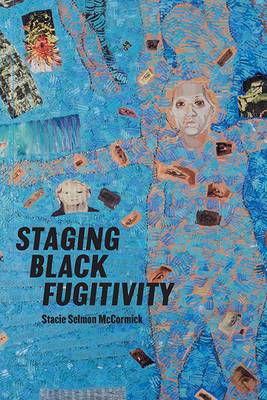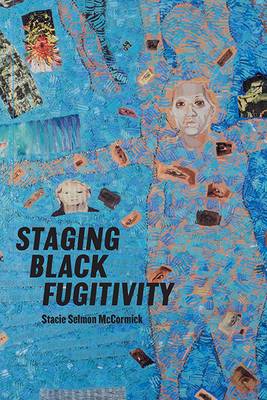
- Afhalen na 1 uur in een winkel met voorraad
- Gratis thuislevering in België vanaf € 30
- Ruim aanbod met 7 miljoen producten
- Afhalen na 1 uur in een winkel met voorraad
- Gratis thuislevering in België vanaf € 30
- Ruim aanbod met 7 miljoen producten
Zoeken
Omschrijving
Staging Black Fugitivity asks: How does drama constitute an important site for ongoing conversations about slavery's resonance and its legacies? To answer this question, Stacie Selmon McCormick charts the historical turn toward slavery in black drama that began in the last quarter of the twentieth century. This movement, spearheaded by August Wilson and Suzan-Lori Parks, has been largely under-theorized, yet it participates in and advances the neo-slave narrative genre-with contemporary black dramas enhancing the neo-slave narrative's capacity to represent the visual, corporal, and affective dimensions of the black body and slavery as an institution. McCormick traces the innovative ways that artists render slavery for present-day audiences. The dramas assembled in this book approach slavery from myriad perspectives-afrofuturist, feminist, and queer-in order to produce new imaginaries that offer more complex depictions of black experience. Through subverting notions of time, race, gender, and familiar histories of slavery themselves, the dramas under discussion produce performances of fugitivity-subversive, radical, and experimental performances of black artistic and political freedom at the site of slavery.
Specificaties
Betrokkenen
- Auteur(s):
- Uitgeverij:
Inhoud
- Aantal bladzijden:
- 178
- Taal:
- Engels
- Reeks:
Eigenschappen
- Productcode (EAN):
- 9780814214053
- Verschijningsdatum:
- 9/09/2019
- Uitvoering:
- Hardcover
- Formaat:
- Genaaid
- Afmetingen:
- 152 mm x 229 mm
- Gewicht:
- 430 g

Alleen bij Standaard Boekhandel
+ 440 punten op je klantenkaart van Standaard Boekhandel
Beoordelingen
We publiceren alleen reviews die voldoen aan de voorwaarden voor reviews. Bekijk onze voorwaarden voor reviews.











